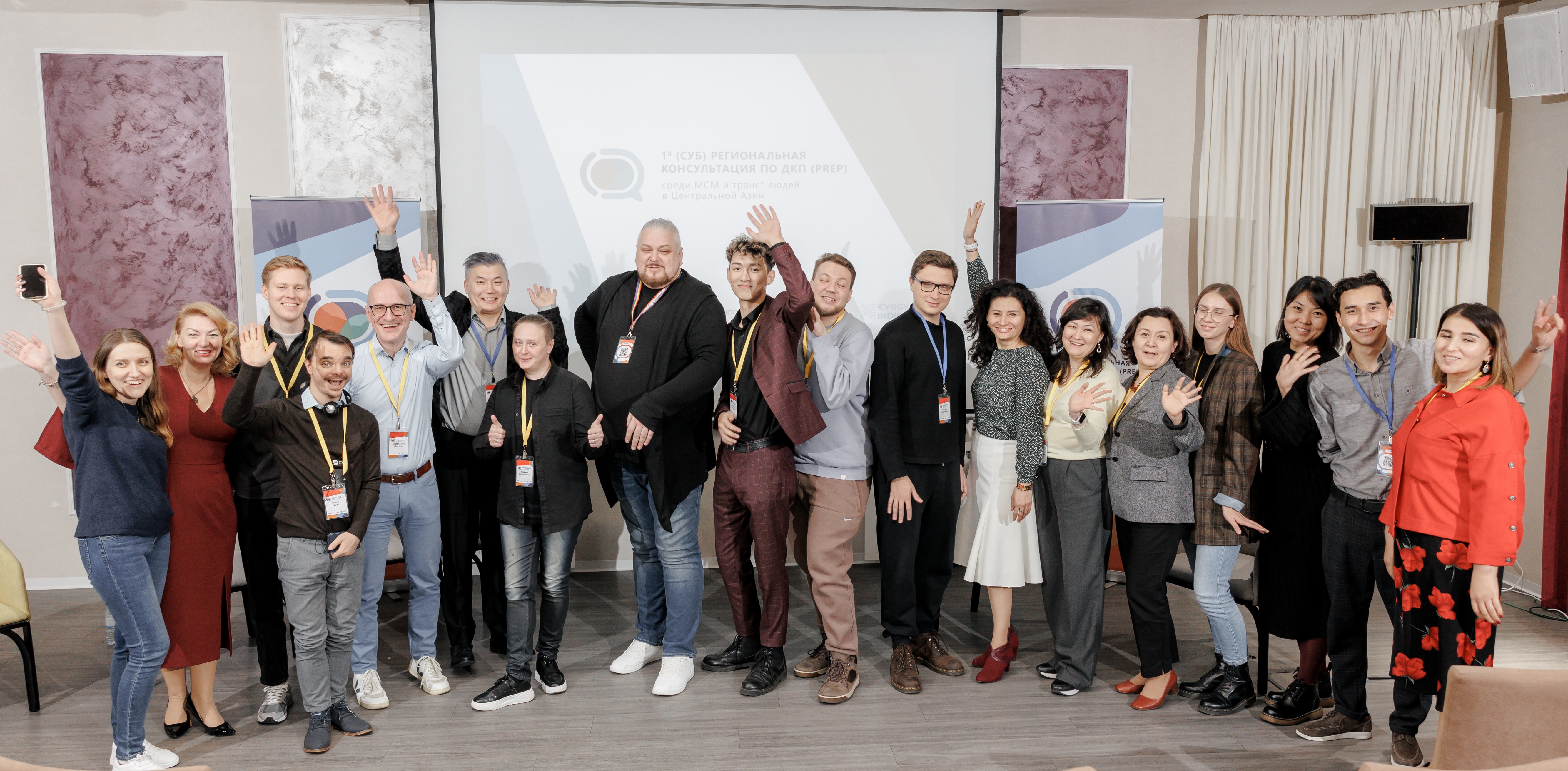Over the past couple of years, political homophobia in Kyrgyzstan has reached new heights, taking the form of active exploitation by government officials. Since the beginning of 2023, several bills have been introduced, which are aimed at vilifying the LGBT movement in the country. The Zhogorku Kenesh (Parliament) is actively discussing issues related to the number of men who have sex with men (MSM), as well as "same-sex marriages". These discussions are taking place against the backdrop of the approval of the budget of the Global Fund, which allocates funds to combat HIV and tuberculosis in the country. So, why is the state actively pursuing a policy of political homophobia at the present time?
Tools for forming public opinion
Political homophobia is used as a tool to manipulate public opinion. Some politicians seek to divert public attention from other important issues, by focusing on the "threat" posed by the LGBT community. This creates a sense of unity and strengthens support for the incumbent government in connection with the development of the concept of “traditional values”, which is becoming the narrative of the current government.
On the other hand, religion plays a significant role in shaping the narrative of “traditional values” and is used in the context of political homophobia in Kyrgyzstan. The country is dominated by Islam, which supports traditional ideas about marriage, family and gender roles based on the interpretation of holy texts. Thus, religious tendencies, often heard on the lips of politicians of the country, strengthen the influence of religion in a significant way.
Another factor influencing the formation of public opinion is Russian propaganda, which is consumed on a daily basis by the country’s population. Since Kyrgyzstan gained independence, no decolonization programs have been developed or implemented. There was no discussion or acceptance of the idea that Kyrgyzstan was a colony, either at the political level or among the general population. It is clear that during the development of Kyrgyzstan as an independent state, it had its own challenges at all levels, which prevented it from ridding itself of the influence of Russia as a whole. Currently, the influence of this propaganda is taking on a special character against the backdrop of Russia’s full-scale invasion of Ukraine.
Trends and laws over the 30 years since Kyrgyzstan’s independence
Since its independence, Kyrgyzstan has undergone a number of political changes, including changes in presidents and forms of government. During these changes, each president sought to make his own amendments to the Constitution, which had a direct impact on the life of the LGBT community in the country.
In 1998, Kyrgyzstan repealed its law on sodomy, which was inherited from the Soviet period. At the time, the concept of LGBT did not have a political connotation and the LGBT movement in the country was not considered a threat. However, in 2012, an amendment was introduced to the Family Code, which defined marriage as a union between a man and a woman. In 2014, a draft bill on “propaganda” was proposed, which raised serious concerns among LGBT activists and human rights defenders. The bill sought to criminalize the "formation of positive attitudes towards non-traditional sexual relations", which could lead to severe restrictions on the freedoms of expression and assembly for the LGBT community.
Due to active protests and pressure from both domestic activists and the global community, this bill was withdrawn, which opened the door for further discussion of the rights of the LGBT community. In 2019, the country's LGBT movement faced additional challenges when a provision in the Law “on acts of civil status” was removed that previously allowed transgender people to change their gender marker in official documents. These amendments in the Constitution are an indication that Russia continues to have significant political influence in the development of Kyrgyzstan’s statehood. If we compare these legal developments in relation to the LGBT movement in Kyrgyzstan with Russian trends, then it is obvious where the real “threat” comes from.
Repetition of “best practices”…
Currently, Kyrgyzstan is following the path travelled by Russia in terms of anti-LGBT initiatives and laws that have been adopted. For example, in 2013, Russia enacted a law on propaganda that prohibits the dissemination of information about non-traditional sexual relations among minors. It imposes administrative penalties, including fines and the closure of organizations. A similar law was put forward in Kyrgyzstan in early March of this year, which has already passed all necessary reviews, and is now being signed by the President. The draft law, which protects children from information that is allegedly harmful to their health, seriously violates the Kyrgyz Republic’s international agreements and Constitution. As human rights organizations have noted in their analyses, such laws limit the diversity of publicly available information on issues related to sexual orientation and gender identity, and may impact topics covered in the media, the availability of information about health and educational services, and the freedom of individuals to organize inclusive and diverse political, artistic or cultural events.
This bill was opposed by local and international human rights organizations. The media has repeatedly published an analysis of this bill and its consequences, calling on Parliament to reject it.
The initiation of this draft bill may have a direct link to a discussion of Global Fund funding in the Parliament of Kyrgyzstan. At a meeting of the relevant committee in Parliament, the issue of the primary recipient of Global Fund funding, which since 2010 has been UNDP in the Kyrgyz Republic, was raised. The deputies were outraged by the amount spent on HIV prevention among MSM and trans people in the Kyrgyz Republic for 2024-2026, which totaled more than $1 million.
It is also worth noting that when drafting the national funding application, all factors that directly affect the significant increase in new HIV cases among key populations were taken into account. Despite the fact that the UNDP, as an international organization, has financial reporting mechanisms and strict transparency requirements, the deputies are outraged by the fact that this organization is not accountable to the Parliament of the country in relation to its implementation of the Global Fund grant. NGOs involved in the implementation of the grant were accused of being affiliated with the UNDP, which also caused a wave of discontent among the public. The deputies demanded that the Vice-Prime Minister dissolve the CCM (country coordinating mechanism), to which a positive response was received. The Vice-Prime Minister, as chairman of the CCPH (Coordinating Council on Public Health), gave instructions that the CCM’s governing provisions be reviewed and that the percentage of members representing state bodies be increased (prior to the dissolution of the CCM, the percentage of members representing state bodies was 50%). This was justified by the assertion that the state needs to be more involved and monitor the spending of grant funds.
The trends and evolution of the CCM (which was previously assessed by the Global Fund, and received a high assessment in terms of its effectiveness, the involvement of the entire body, and the representation of all key populations affected by HIV and TB) at the state level, undermine the authority and understanding of the epidemiological situation in relation to HIV and tuberculosis, and contribute to the increasing level of HIV-phobia in society, and to manifestations of stigma and discrimination, which key populations frequently face. In addition, to a large extent, statements by certain deputies, which have included calls for violence and xenophobia, serve to develop the public's negative attitude towards representatives of the LGBT community.
The next step in Kyrgyzstan’s political rapprochement to Russia is the draft law “On amendments to some legislative acts of the Kyrgyz Republic (the Law of the Kyrgyz Republic “On non-profit organizations”, the Law of the Kyrgyz Republic “On state registration of legal entities, branches (representative offices)”), which would impose the status of a "foreign agent" on non-profit organizations in Kyrgyzstan that receive funds from foreign states or international organizations and are engaged in "political activity" within the territory of Kyrgyzstan. According to the bill, any non-profit organization will be required to submit to the relevant governing body a report on its activities and on the personal composition of its governing bodies, as well as documents on how its funds are spent. Non-profit organizations performing the functions of a "foreign agent" must also provide an auditor's report. In addition, it is proposed to require so-called “foreign agents” to submit a report on their activities every six months, which would contain information about their founders and their property. The draft law also provides that, if adopted, the state will be able to issue a written warning upon detection of violations of the law by CSOs (civil society organizations) and "foreign agents". Moreover, if an organization engaged in "political activities" has not submitted an application for inclusion in the register of "foreign agents", the authorized state body has the right to suspend the activities of the non-profit organization for up to six months.
Together with amendments to the laws "On non-commercial organizations" and "On the state registration of legal entities, branches (representative offices)", the deputy proposed to amend the Criminal Code, according to which an organization whose activities are associated with "the use of violence against citizens or other harm to their health, or inducing citizens to refuse to perform civic duties or commit other unlawful acts" will be punished by a fine of 500 to 1000 times the unit of calculation, or imprisonment of up to five years.
In addition, on November 4, 2022, the Administration of the President of the Kyrgyz Republic submitted for public discussion the draft law "On non-profit organizations". The bill’s explanatory note refers to the need to strengthen the political and legal requirements for the establishment and operation of non-profit, non-governmental organizations. The bill introduces the concept of a "foreign non-governmental" organization, which refers to branches and representative offices in Kyrgyzstan of organizations established outside the country. In addition, if the law is passed, CSOs will have to register in a special register of the Ministry of Justice, and only after doing so will be allowed to carry out their activities.
According to the draft law, monitoring the activities of CSOs will primarily be carried out by the prosecutor's office and the Ministry of Justice. The document prescribes the broad powers of these state bodies, and gives them the right to:
- Request the administrative and financial records of CSOs.
- Request and receive information about the financial and economic activities of CSOs from state statistical bodies, tax authorities and other state supervision and monitoring bodies, as well as from banking institutions and other financial organizations.
- Send its own representatives to participate in CSO activities.
- Monitor the activities of CSOs, including the spending of funds and the use of other property, for compliance with the goals established in their charters.
The draft also provides that in cases where the law is violated, state bodies can issue a written warning to CSOs, which must resolve the issue within a month. In case of disagreement, the organization can appeal the warning in court.
As of June 2023, both bills were "frozen" until the fall (until the end of the parliamentary vacation).
It seems there is already an answer to why the country is so openly and aggressively pursuing a policy of political homophobia: current trends and the rapprochement of Kyrgyzstan with Russia are based on several factors that directly relate to Russia's global reputation. For the latter, it is very important to keep its influence at various levels and therefore the steps taken for this purpose are obvious. Against the backdrop of the war in Ukraine, the Kremlin has not yet received clear support for its actions from any of the countries of Central Asia. It is therefore important for the Kremlin to use every possible means to push the countries of the former Soviet Union to "copy" its discriminatory bills, and create the appearance that the countries share the very values and actions that Russia is pursuing.





Комментарии
Пока никто не оставил комментарий